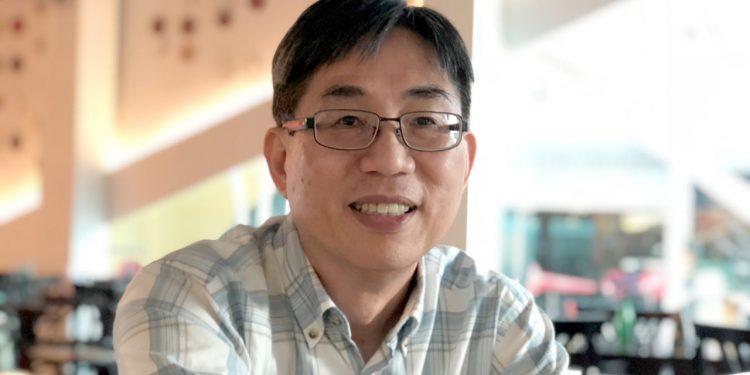This is a post by National Trades Union Congress Assistant Director-General Ang Hin Kee. Any extracts should be attributed back to the author. 31 July 2018.
The inaugural SkillsFuture Awards was held last year to encourage Singaporeans to develop new competencies or deepen existing skills. With this year’s edition approaching, I am happy to see that efforts to upskill Singaporeans and cultivate a culture of learning is gaining momentum. But it also had me thinking about the other contributors to the lifelong learning and skills mastery locomotive.
To understand more, I turned to Laboratory Technologist, Tan Choon Huat (featured photo), 55, a veteran unionist in the Education Services Union. He has been a support staff in a university helping undergraduates for the last 32 years. Choon Huat shared that in recent years, there has been more focus on curating learning content and packaging its delivery for adult learners. What’s more, because they are mostly self-initiated, adult learners are especially keen for experiences at the learning laboratory to have direct value at their workplaces. That makes designing curriculum and weaving in a unique learning experience an ever-challenging affair.
Our learning landscape has evolved in dramatic pace. Digitalisation has also significantly changed the way we learn and acquire knowledge. Learning is no longer confined to classroom settings and hardcopy notes. Trainers are getting innovative in their lesson delivery – making use of real-time tools, online quizzes and videos to enhance the learning experience. Content is packaged and presented via videos, short animation clips or infographics. Much effort goes into curating content, as well as designing and editing work. For support staff like Choon Huat, he will need training to pick up new skills to give better support to lecturers and undergraduates alike.
A case in point is the SkillsFuture at the Digital Workplace workshop for taxi drivers. Experiential learning elements were woven into the course curriculum after the course designer from the NTUC LearningHub discussed with drivers during the pre-workshop stage. Some drivers were initially sceptical of technology but ended up having fun learning about digital applications such as Parking.sg, trying their hands at transferring money using PayNow and even ordering meals using their smartphones. At the backend, the course designer and facilitators had to customise the course materials and delivery to cater to taxi drivers who had differing digital knowledge and receptiveness.
What’s even more challenging is that we have many young adult learners who are tech-savvy and an increasing number of older learners who are just hopping onto the digital bandwagon. Thus, many course applications and learning platforms have to be designed with these different users in mind. From developing bite-sized content and videos for the young audience, to making sure the older group can navigate the site easily with clear visuals and instructions. To make sure the system operates smoothly without glitches, a new set of capabilities is required for support staff. The pace of transforming their skills levels is critical to ensure that they can be effective in assisting adult learners in their SkillsFuture endeavours.
This year’s SkillsFuture Awards ceremony will be presented by President Halimah Yacob, who is the Patron of the awards. The SkillsFuture Fellowships will be conferred upon respected masters of various fields to recognise Singaporeans who have acquired deep skills through significant experience in their areas of expertise and who are committed to supporting others in their skills journey. The SkillsFuture Employer Awards will recognise exemplary employers who made significant efforts to invest in their employees’ skills and develop skills-based career progression pathways.
My congratulations to all the awardees. They have demonstrated resilience and ability to adapt fast to the changes in the learning landscape by picking up new skills. Indeed, we place much emphasis on cultivating a learning culture and recognising those who walk the talk. To move this SkillsFuture locomotive ahead, I feel that it is necessary to invest in higher quality content and enhance the skills level of people within the ecosystem, including the support staff. It is imperative to ensure that content designers and support staff within the learning ecosystem, like Choon Huat and his peers, receive the support and recognition for the work they put in. Perhaps next year, the SkillsFuture Awards committee can consider adding a new awards category to commend these silent warriors who play an equally important role to fuel the lifelong learning and skills mastery locomotive for the rest of us.

